
THE FORGING OF THOR'S HAMMER - MJOLLNIR
THE TALE OF HOW THE GODS ACQUIRED THEIR MOST POWERFUL WEAPON
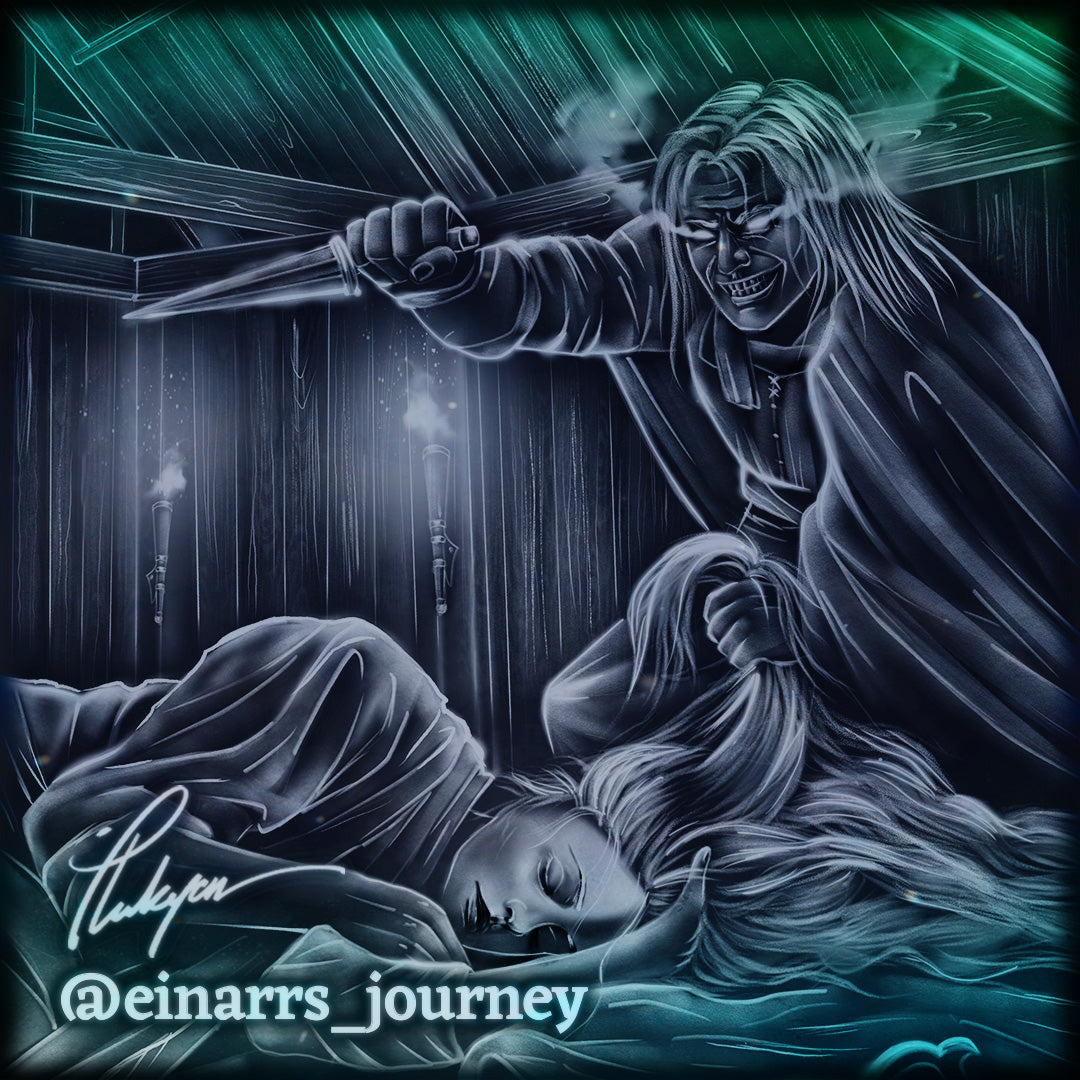
It all started with the antics of a wily trickster...
This is the tale in which the gods came into possession of some of their greatest weapons and treasures, and it all starts, like many of the Norse myths, with the antics of a wily trickster.
Sif was a goddess admired by all for her beauty and her gorgeous golden hair. She is the wife of Thor, the strongest and most feared among the gods. One fateful night, for no other reason than his delight in deception, Loki decided that he would crudely slice off Sif's golden hair. Perhaps it was jealousy, or maybe even something else, but this is not something that the gods, Thor especially, would take lightly...
SOME KEY THINGS TO KNOW ABOUT MJǪLLNIR
A weapon and a Pendant
According to some interpretations of Norse mythology, Mjǫllnir possessed a special attribute that allowed it to change in size. While it could be wielded as a mighty weapon, it could also be reduced in size to the point where it was small enough to be worn as a pendant around Thor's neck. This feature allowed Thor to carry his powerful hammer with him wherever he went, ensuring that he could summon its strength when needed.
The idea of Mjǫllnir being a wearable pendant is not as prominent in Norse mythology as its role as a fearsome weapon, but it adds an interesting layer to the mythology, showcasing the versatility of this legendary artefact. Whether wielded in battle or worn as a pendant, Mjǫllnir remains a symbol of Thor's strength, protection, and his status as the thunder god in Norse mythology.
The most powerful weapon that the gods possess
Mjǫllnir is the most powerful weapon that the gods own, it is more powerful than any army and is wielded by the strongest of the gods. It is the most invaluable treasure that the gods own, and the only weapon capable of bringing an end to the giant monster that rivals the thunder god - Jǫrmungandr.
Does it actually return to Thor when thrown?
Yes, that's not just something invented by Marvel. Much like Odin's spear Gungnir, The hammer is said to never miss it's mark. On top of this, the hammer will return to Thor once thrown, making it a versatile and immensely destructive weapon in Norse Mythology.
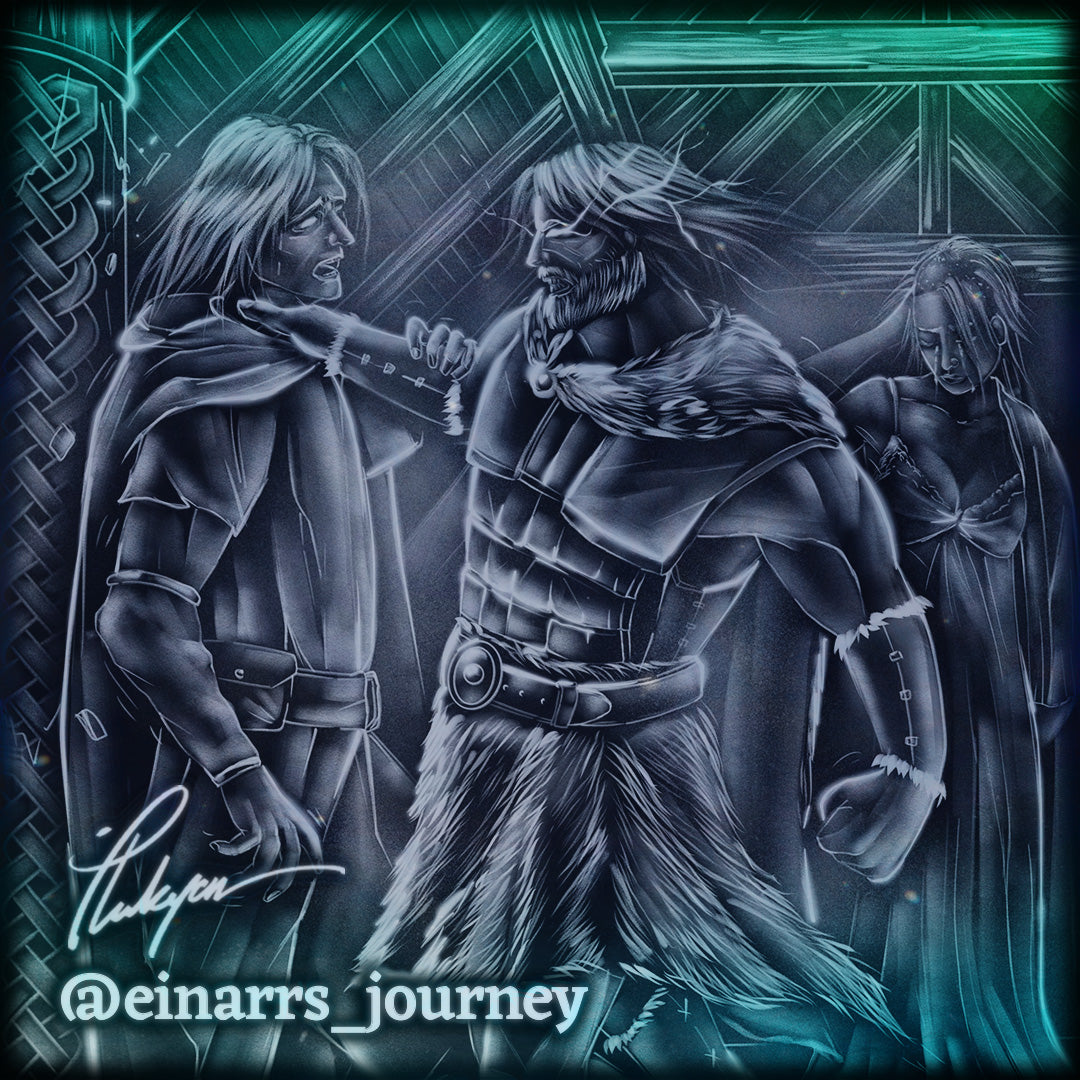
The wrath of Thor was more than Loki had bargained for
Thor's home was awoken with a scream from his wife, who had awakened to find a bed full of her own crudely cut-off hair, the very hair that she was loved and adored for.
It didn't take long for the thunder god to piece together just what, or who, had caused this. It was Loki, for no other reason than his own pettiness. Thor swiftly caught up to the fleeing Loki, dragging him by his hair back to their home to confront what he had done.
After smashing Loki into a wooden support beam, he gave him two choices: have every bone in his body broken or go to the dwarves in Svartalfheim and have them forge a new golden head of hair for Sif, one that would glimmer in the light and grow from her head as if it were her own.
After pleading for his life, the cowardly trickster fell to his knees, gasping for air, before scurrying away to the subterranean land of the dwarves in a quest to save his own skin.
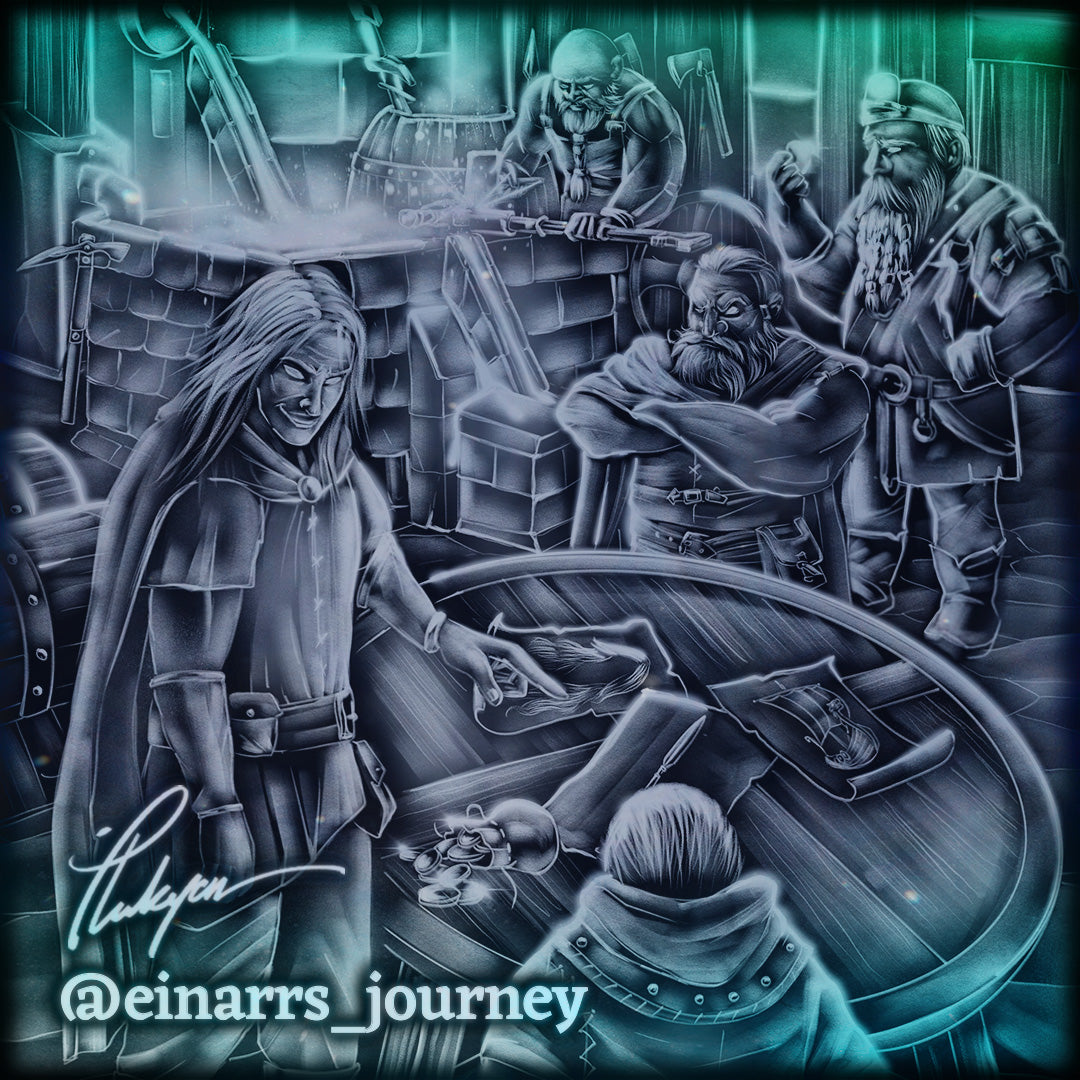
Three incredible treasures
After scurrying away from an enraged Thor, Loki finds himself traveling to the realm of the dwarves, Svartalfheimr, where he will approach a group known as the sons of Ivaldi. Using his cunning and wit, Loki will negotiate for three treasures from the dwarves to save his own skin and then some:
- Sif will receive a beautiful golden head of hair that will grow from her head as if it were her own.
- Odin will receive Gungnir, the "swaying one," a spear forged to never miss its mark.
- Freyr will receive Skidbladnir, a ship that always has a favourable wind and can be folded down into his pocket.
Noticing an opportunity for even more mischief, Loki will use these three marvels as leverage for a bet with two more blacksmiths, a wager that he will come to regret.
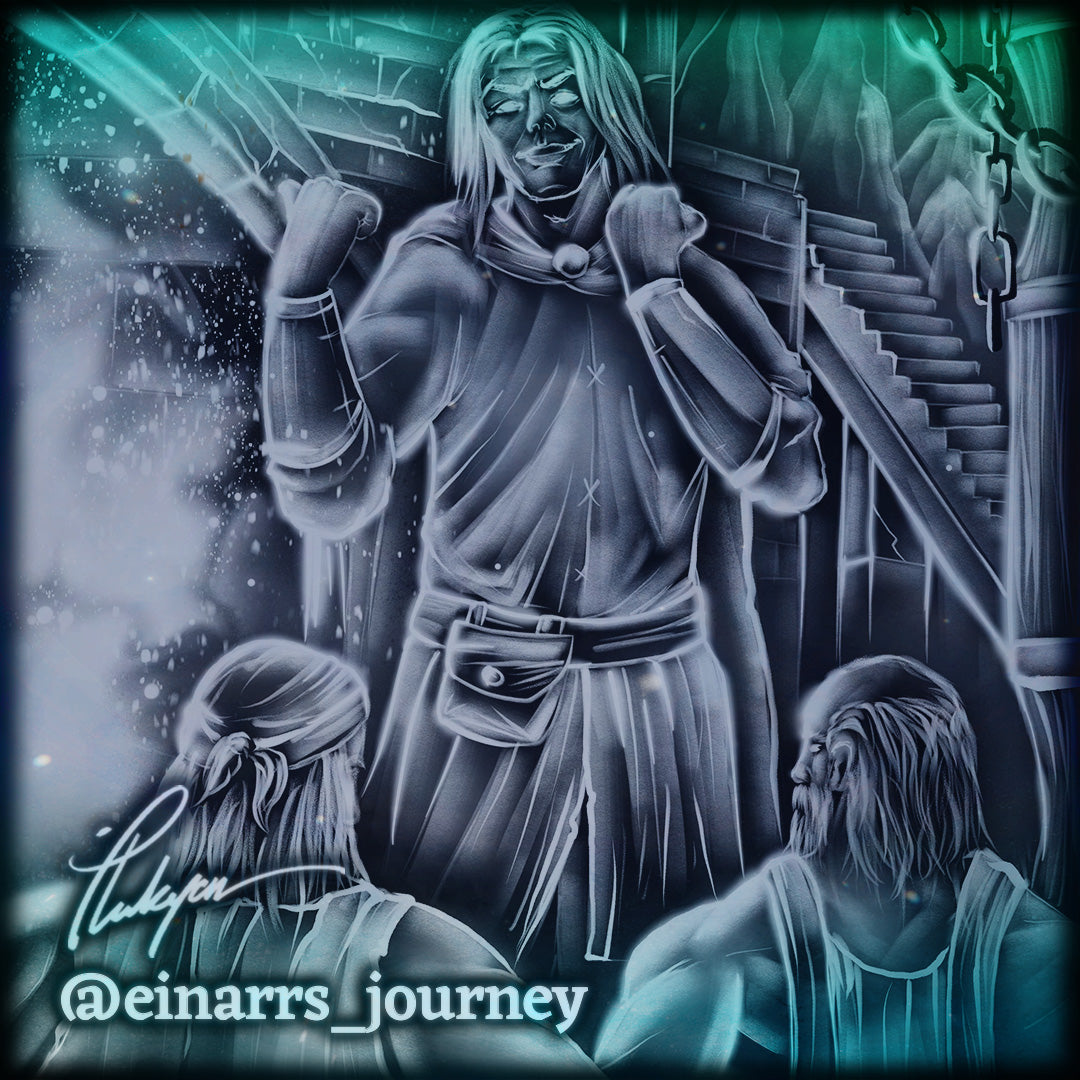
An offer the dwarves couldn't resist
This part of the story sees Loki seizing an opportunity for more trickery by wagering his own head to the Dwarves Brokkr and Sindri as part of a bet that they couldn't create three marvels of higher quality than those of the Sons of Ivaldi.
The two legendary craftsmen accept this wager, unaware that Loki plans to intervene in the forging process, causing them to lose their bet and securing three more priceless artefacts for himself to present to the gods.
If his plan works, that is. It's ironic that he would wager his own head in an attempt to spare himself from the wrath of Thor. Could it be desperation, or perhaps he just couldn't pass up an opportunity to deceive?
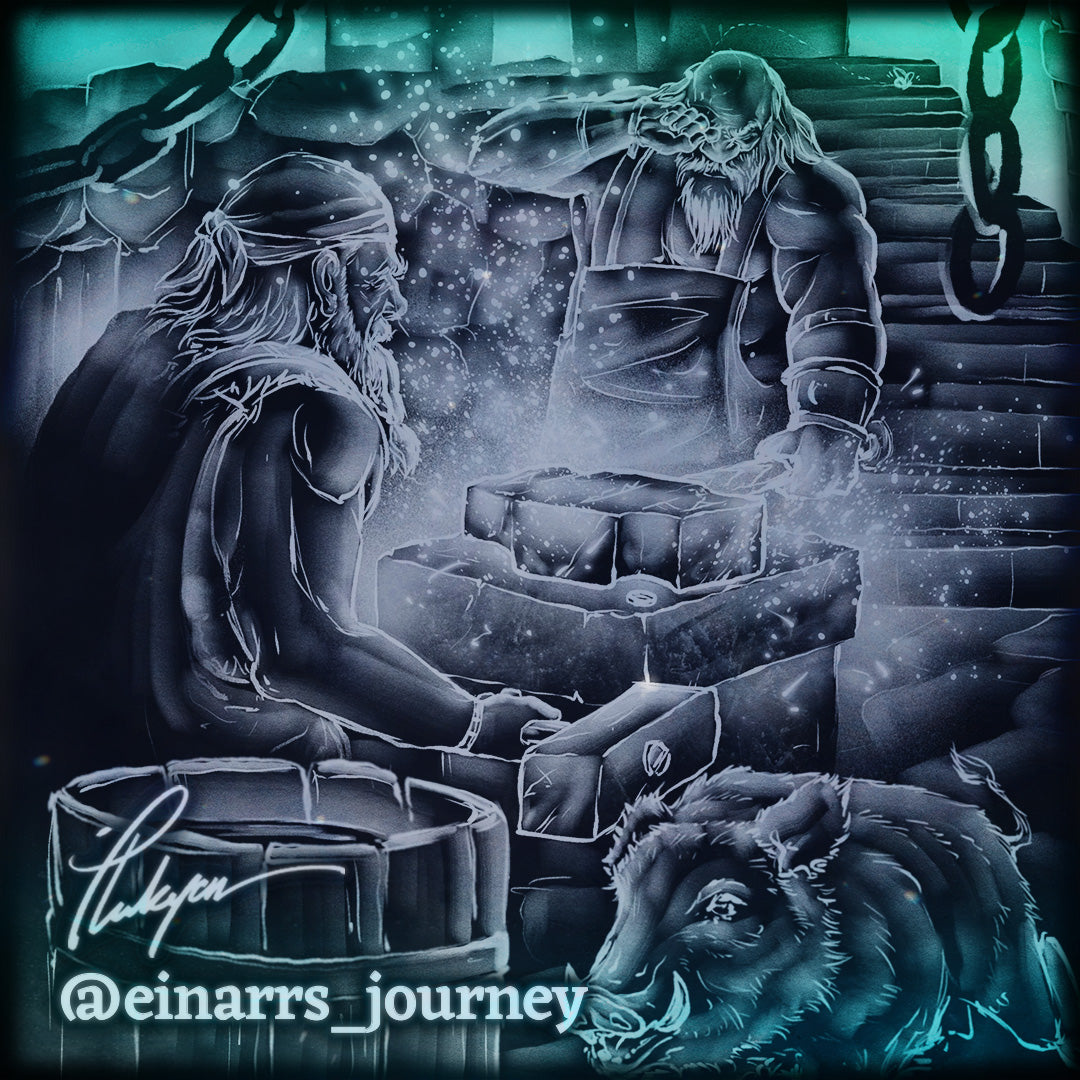
Forging the Hammer
In a high-stakes wager, the legendary craftsmen Brokkr and Sindri are tasked with creating three superior marvels for the gods to outshine the work of the Sons of Ivaldi. Their confidence, fueled by the desire to best the Trickster, Loki, drives them to embrace the challenge.
The first two creations, Gullinbursti, a stout golden-haired boar, and Draupnir, a remarkable self-duplicating arm ring, are successfully crafted despite Loki's disruptive presence in the form of a persistent fly. However, the pivotal item, Mjollnir, the mighty hammer, demands unwavering attention.
Here, Loki's cunning takes a physical form as he stings Brokkr's eye, momentarily distracting him and causing a minor setback. Although the hammer is saved, its handle turns out shorter than planned.
Undeterred, the brothers embark on a journey to Asgard, carrying their creations, while Loki, resuming his true form, also heads to Asgard with his acquired treasures from the Sons of Ivaldi. The fate of Loki and the outcome of this presentation hang in the balance, setting the stage for a crucial judgment.
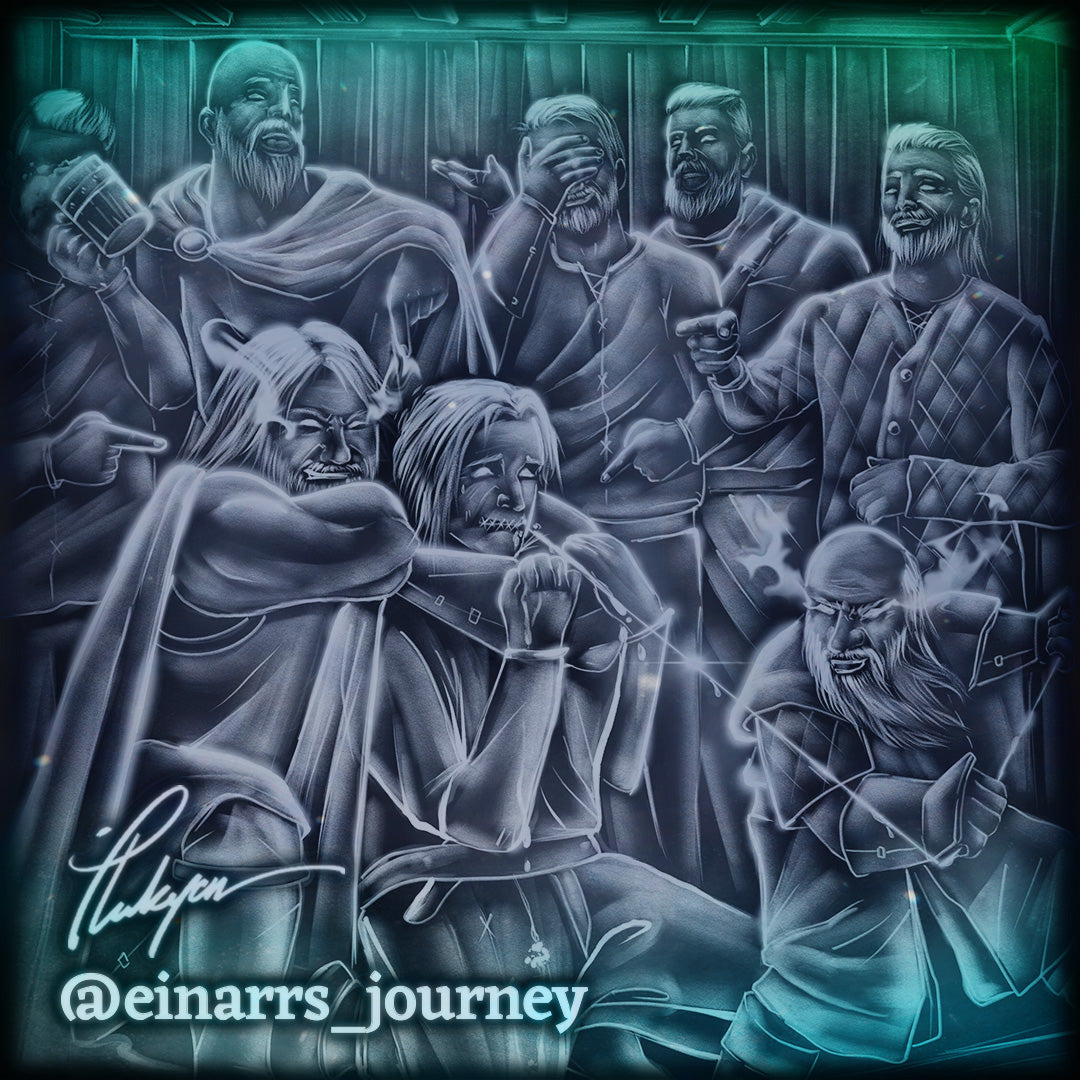
"I said my head, I never said anything about my neck"
Turning to Loki with an eager grin, Brokkr was prepared to claim his prize. Loki pleaded and tried to negotiate, offering to redeem himself, but no prize in the Nine Realms is more satisfying than Loki's head.
In a last-ditch effort, Loki dared Brokkr to catch him and took off running, only to be caught by Thor. He still had one trick up his sleeve, a loophole in their agreement. He had agreed to let the dwarf take his head but had said nothing about his neck. 'My neck you must leave intact,' he declared—a shallow trick that narrowly saved his life, but not without consequence.
Refusing to let Loki off the hook for his transgressions, Brokkr took a sewing needle and proceeded to sew his mouth shut to silence him, making sure to perform the surgery as crudely and roughly as possible, inflicting as much pain as he could.
The gods reveled at the sight of Loki's punishment, as did Thor, who held him down. Brokkr left satisfied with his vengeance, the gods enjoyed a feast, and Loki would live to tell the tale, when he can open his mouth, that is.
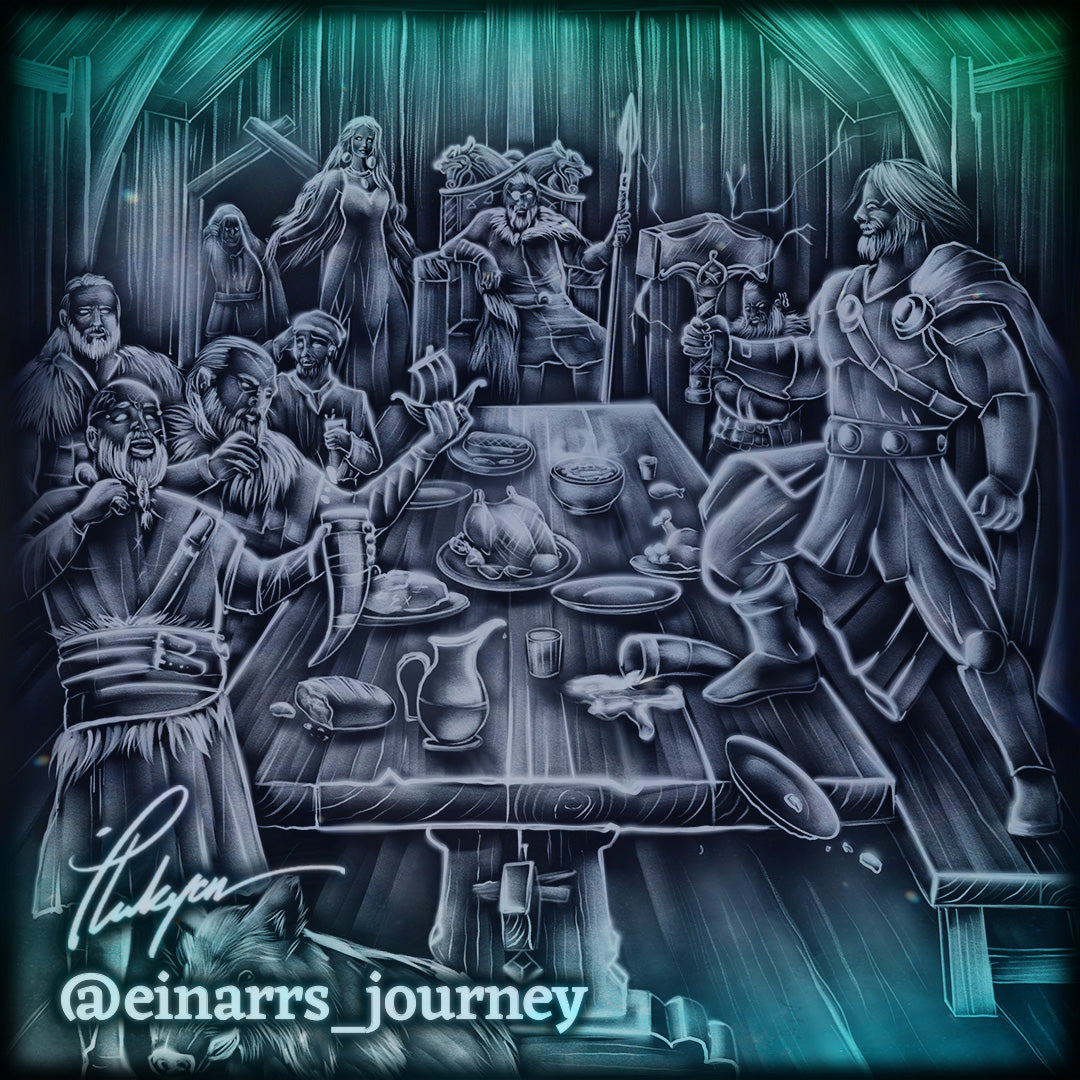
A tense presentation
The dwarf Brokkr heads to Asgard with the three creations, crafted by him and his brother Sindri, as does Loki with those he acquired from the Sons of Ivaldi. A tense presentation is about to begin, with each party presenting their gifts to their respective recipients.
The gods allow Loki to present his gifts first, and he eagerly lays before them a beautiful head of shining hair for Sif, a magnificent spear like no other for the king of the gods, and a ship that can fold into a pocket and always catch a favourable wind for Freyr.
Next is Brokkr, who presents his three marvels: a golden ring that spawns 8 copies of itself every 9th night given to Odin, the golden-bristled boar to Freyr, and finally the flawed but powerful hammer to Thor. Much like the swaying spear, Mjǫllnir always hits its mark and is to be the most powerful weapon the gods possess.
The gods declare Brokkr the winner after receiving the most powerful weapon the Nine Realms have ever known, one that will forever aid them in their battles against the giants. Brokkr is the winner, and the prize is Loki's head.
